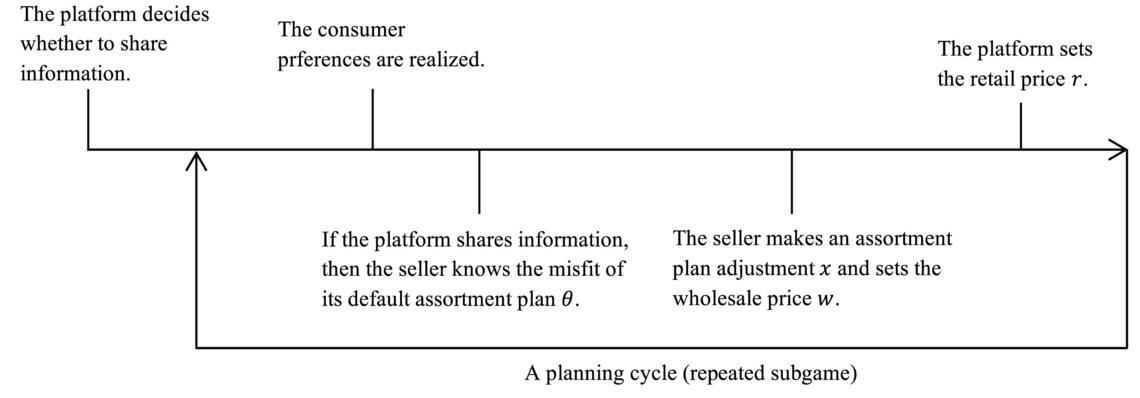May 9, 2024
Addressing information sharing in an Ecommerce marketplace: The Amazon re-seller scenario

When consumers are purchasing products on platforms like Amazon Marketplace, they are often looking for the best price and might not be thinking about how the product price was determined. Ecommerce platforms can use consumer information gathered through data collected on the platform, such as consumer preferences, to make advanced predictions about consumer demand—essentially, who is going to buy what and how much of it they are going to buy. This information is valuable for the sellers on the platform to plan things like inventory and shipping logistics, and it can impact final pricing for the consumer as well as profits for the platform and sellers. The platform faces the choice of whether to share this consumer information with sellers. This is the topic of BTMA Assistant Professor Jian (Ray) Zhang’s, 2023 publication [1] in Decision Support Systems journal, co-authored with BTMA Professor Barrie R. Nault.
“Information sharing about customer preferences can be voluntarily beneficial for a platform, particularly when it operates as a marketplace for third-party sellers and collects commission fees. In these scenarios, sharing information typically boosts the seller's revenue and, consequently, the platform's commission income.” says Zhang.
However, what seems like a win-win scenario for sellers and for the platform itself is not always simple like this. The research shows that this is especially true when consumer preferences are more uncertain, sharing information can be counterproductive for the platform. Further, Zhang and co-author find that when the platform acts as a reseller sharing information to upstream sellers isn’t always in the platform’s best interest. For example, in Amazon’s case, for the products that are labelled as ‘sold by Amazon.ca’, the platform might not always want to share information with its vendors.

The timeline for the related activities of the seller and platform in a planning cycle in the reseller setting, Figure 2 from Zhang and Nault (2024).
“In such cases, more detailed consumer preferences might not prompt upstream sellers to adapt their retail plans to minimize losses but rather lead them to adjust wholesale prices more frequently, reducing the platform’s profit margin.”
This is where Zhang and Nault’s analytical approach comes in, they look at two methods for sharing information in the re-selling setting: a price ceiling approach, where the platform signs a contract to limit the seller’s wholesale price, and a subsidization approach, where the seller pays an additional fee for the information.
“The double marginalization effect—an effect that drives most market margins go to the upstream supplier in a supply chain — might be more severe when the upstream seller has more information about the market. This effect will harm supply chain efficiency and consumer welfare. A price ceiling approach will limit the double marginalization effect and ensure the platform benefits while sharing information. In Amazon’s case, a price contract is typically required before a seller becomes a vendor. Our results suggest that such contracts are actually a foundation for more efficient information sharing that enhances supply chain efficiency.”

BTMA Assistant Professor Jian (Ray) Zhang, Ph.D,
Contrary to existing research about more traditional markets, like brick-and-mortar stores, these findings show that sharing information is different for eCommerce platforms because the platform is incentivized to share information in specific retail settings and not in others. Zhang describes the lasting impact of this research on information sharing strategies for e-commerce platforms,
“When a platform willingly shares information in scenarios like the ones mentioned earlier (third-party seller scenario), its strategy should be straightforward: share everything known about consumers with the sellers. However, in situations where a platform might not voluntarily share information (re-seller scenario), it should implement a mechanism that ensures it is not disadvantaged by the sharing. Our findings provide strategic insights for platforms in designing effective information sharing strategies.”
[1] Zhang, J., & Nault, B. R. (2024). Upstream Information Sharing in Platform-Based E-Commerce with Retail Plan Adjustment. Decision Support Systems, 177. Doi: https://doi.org/10.1016/j.dss.2023.114099.
Find more information about iRC research and activities here.
